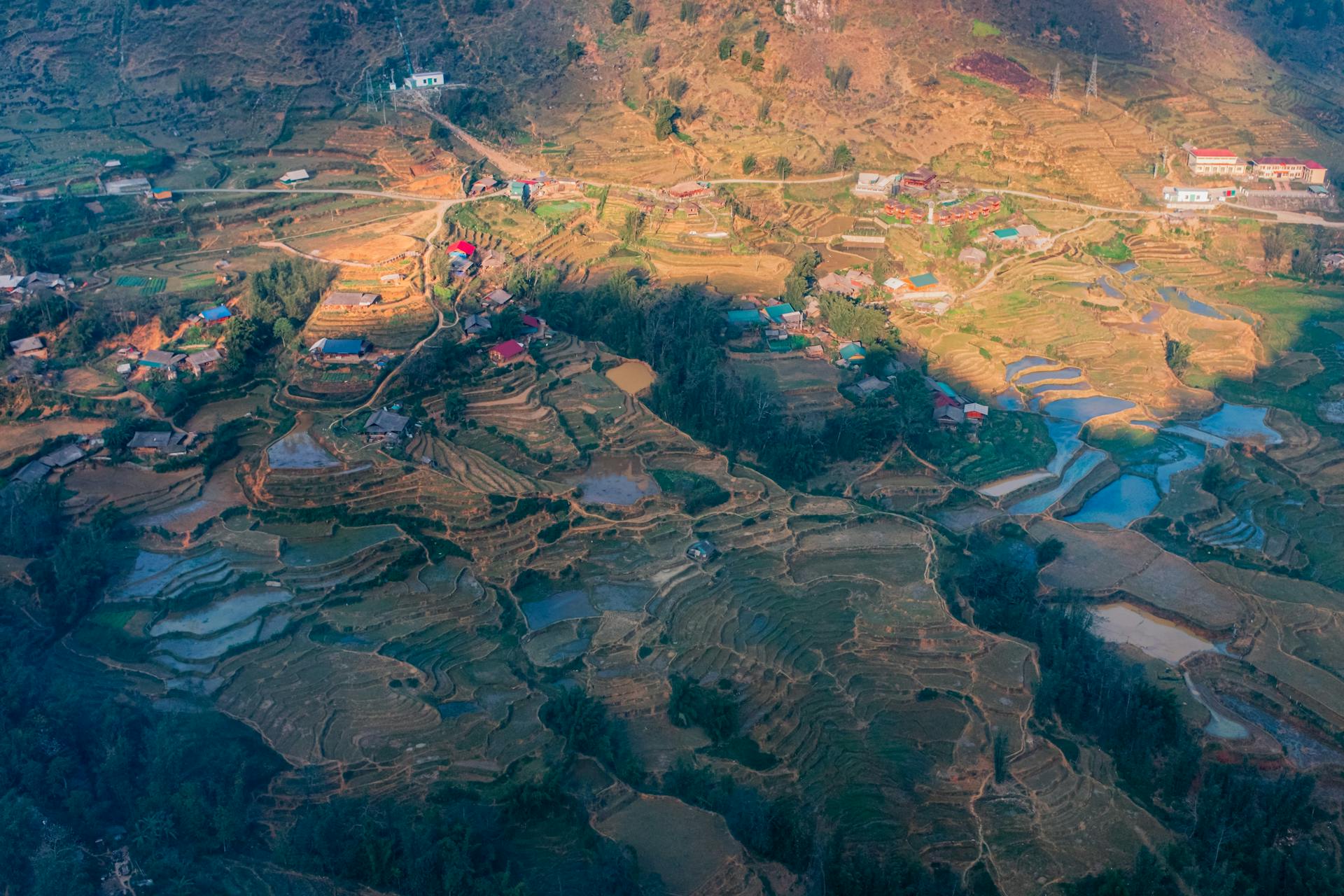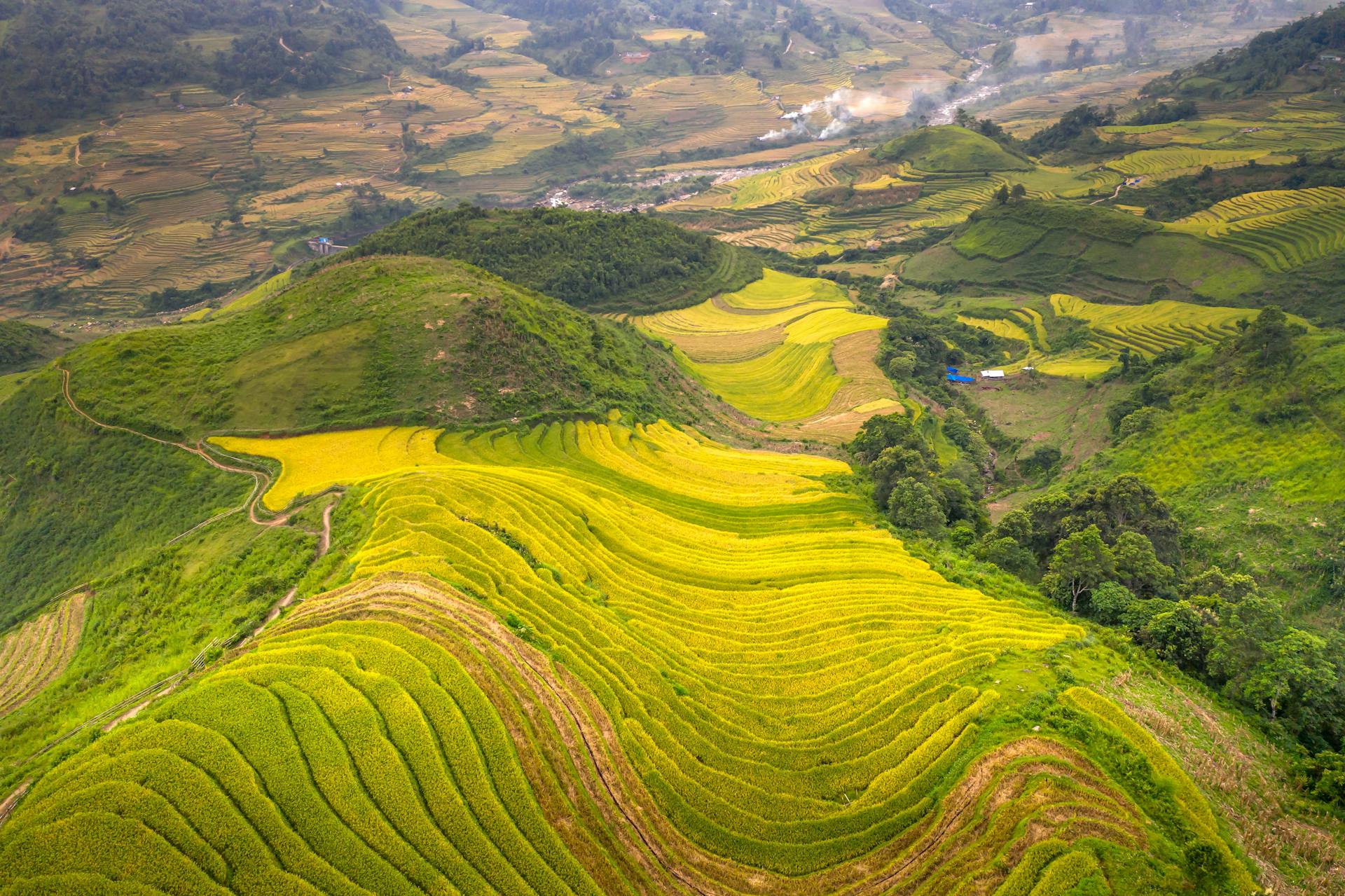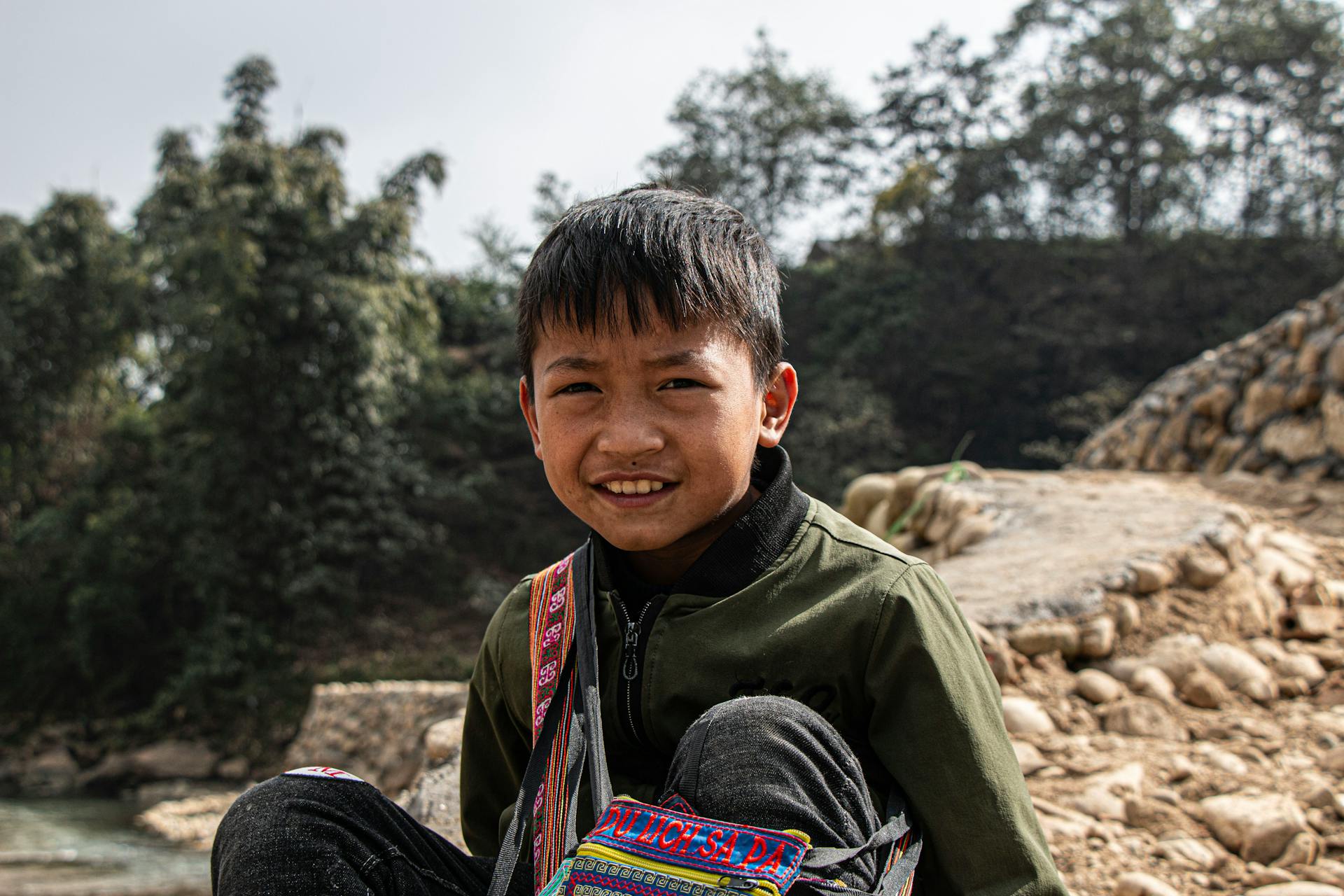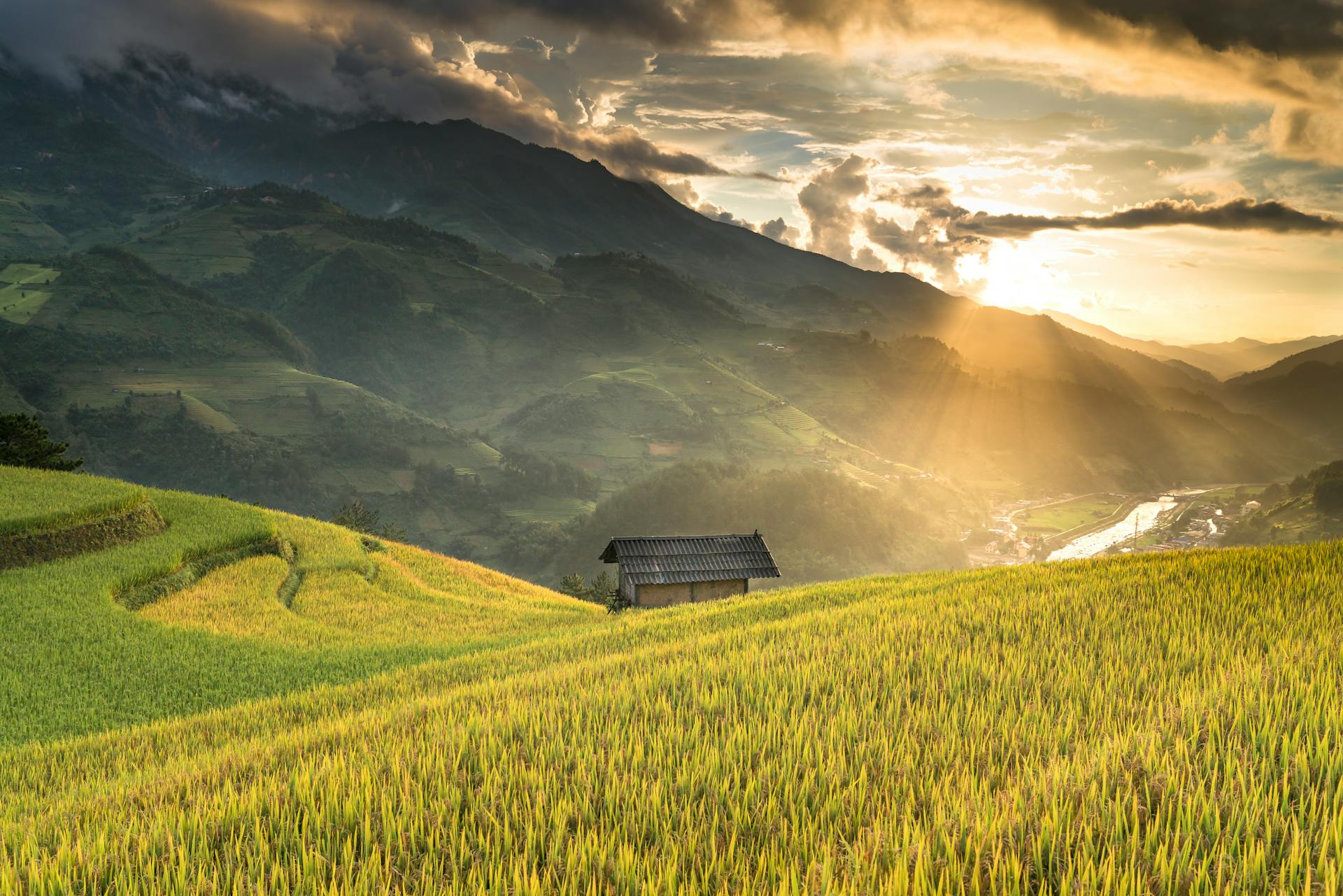Plan a secure visit to Ta Van, Sa Pa, Vietnam with our 2025 safety guide! Learn about crime risks, health precautions, cultural tips, eco-friendly Ta Van Tours, and top providers for a safe adventure with Ta Van Travel. Start your journey today!
Author Bio: Written by Tony Bùi, with over 20 years of experience in the travel industry, personally guiding and organizing tours for over 100,000 travellers across Southeast Asia. This guide draws from firsthand insights, guest feedback from Legend Travel Group surveys, and official sources like izitour.com, topasecolodge.com, culturetrip.com, localvietnam.com, sapa-tourism.com, and travel.state.gov. Information based on latest data as of August 22, 2025; verify before travel. Reflects Vietnam’s updated travel regulations.
Ta Van, a picturesque village in the Muong Hoa Valley, 10 km from Sa Pa town in northern Vietnam, is renowned for its terraced rice fields, Hmong and Giay homestays, and cultural festivals like the "Down the Field" festival izitour.com. Whether exploring with guided Ta Van Tours, prioritizing safety ensures a worry-free experience in this serene, high-altitude (1,200–1,500 meters) destination. As of 2025, Ta Van has a high safety index of 75–80, with low violent crime rates and a welcoming community, but petty crimes like pickpocketing in nearby Sa Pa markets, slippery trails, and cold winters require caution localvietnam.com. This guide provides practical safety tips, cultural etiquette, and eco-friendly Ta Van Travel options for a secure and respectful journey.
Following Vietnam’s updated travel regulations in 2025, Ta Van is accessible via bus or taxi from Hanoi to Sa Pa, followed by local transport to the village, supported by local infrastructure and community hospitality. This guide blends safety insights, cultural tips, and sustainable Ta Van Travel ideas for a seamless visit.
Ta Van is generally safe, with low violent crime but low to medium risk of petty crimes like pickpocketing in nearby Sa Pa markets (e.g., Sa Pa Night Market). Exercise caution on slippery trails, especially in summer, and during cold winters with fog. A Vietnam visa is required for most ($25 or 625,000 VND). Report incidents to local police (113) or Vietnam Embassy (+84 24 3938 0000). Verify safety advisories via vietnam.travel or travel.state.gov.
 Immerse in Ta Van’s secure and vibrant heritage (Source: Internet)
Immerse in Ta Van’s secure and vibrant heritage (Source: Internet)Overall Risk: Low to Medium. Ta Van has a high safety index (75–80), safer than Hanoi (65) but slightly less safe than Hoi An (80) localvietnam.com. Most visits are trouble-free, but vigilance is needed in nearby Sa Pa markets topasecolodge.com.
Violent Crime: Low. Violent crimes against tourists are rare; isolated incidents like minor theft may occur on remote trails at night travel.state.gov.
Petty Crime: Low to Medium. Pickpocketing and bag-snatching are possible in crowded Sa Pa markets or during festivals like Tet, less common in Ta Van itself sapa-tourism.com.
Scams: Medium. Common scams include overpriced taxis or fake guides in Sa Pa town. Negotiate fares upfront and book through reputable providers izitour.com.
Terrorism: Low. Ta Van and Sa Pa have no significant history of terrorist incidents; remain vigilant in crowded areas during festivals travel.state.gov.
Women Travellers: Low Risk. Ta Van is safe for solo female travellers, with low harassment; dress modestly and avoid isolated trails at night culturetrip.com.
Isolated Trails at Night: Avoid poorly lit or remote trails in Muong Hoa Valley after dark to reduce risks of petty theft or getting lost localvietnam.com.
Crowded Sa Pa Markets During Peak Hours: Sa Pa Night Market and other markets have higher pickpocketing risks during busy times; secure valuables sapa-tourism.com.
Unregulated Transport: Avoid unofficial taxis or motorbike rentals in Sa Pa to prevent scams or unsafe vehicles; use reputable operators like Grab topasecolodge.com.
Natural Disasters: Low to Medium. Minor flooding is possible in summer (June–August) on low-lying trails; fog is common in winter (137 foggy days/year); tsunamis are not a concern. Check weather reports via accuweather.com topasecolodge.com.
Health Risks: Medium. Mosquito-borne diseases like dengue are a risk in summer; use repellent ($1 or 25,000 VND). Food poisoning is possible; eat at reputable homestays. Cold snaps in winter (-3°C) require warm layers to avoid chills travel.state.gov.
Vaccinations: Recommended: Hepatitis A, Hepatitis B, Typhoid, Tetanus; Japanese Encephalitis for rural travel; Yellow Fever if arriving from high-risk countries. No COVID-19 vaccine required travel.state.gov.
Trail Safety: Medium Risk. Slippery trails in summer and foggy conditions in winter pose risks; wear sturdy trekking shoes ($5 or 125,000 VND); avoid trekking alone in fog izitour.com.
Tip: Carry a first aid kit ($2 or 50,000 VND); drink bottled water ($0.20 or 5,000 VND); avoid tap water; verify vaccination needs at travel.state.gov.
Cultural etiquette enhances safety and ensures a respectful experience during Ta Van Tours. Here’s your guide, based on current norms as of August 22, 2025:
Greetings: Offer a “xin chào” (hello) with a slight nod; use both hands when paying for homestays or offering donations to show respect, especially in Hmong or Giay communities.
Dress: Wear modest clothing covering shoulders and knees, particularly in homestays or Ta Van Church; a lightweight scarf ($1 or 25,000 VND) aligns with local norms and reduces attention from scammers culturetrip.com.
Behaviour: Maintain a calm demeanor in homestays and markets; ask permission before photographing locals or artisans, especially during festivals; carry valuables discreetly to deter pickpockets. A guest shared: “Respecting Hmong and Giay customs kept us safe and enriched our visit.”
Customs: Avoid touching sacred items or craft displays; respect homestay rules (remove shoes, respect shared spaces); tipping is not mandatory but appreciated ($0.20–$1 or 5,000–25,000 VND); avoid drugs (severe penalties apply) culturetrip.com.
Tip: Say “cảm ơn” (thank you) to locals or guides; use eco-friendly practices like carrying reusable water bottles ($2 or 50,000 VND) to support sustainable Ta Van Travel; stay vigilant in crowded Sa Pa markets. Tony Bùi notes: “In 20 years guiding, I’ve seen respectful travellers thrive in Ta Van’s safe culture.”
General Tips:
Language: Carry a phrase card ($1 or 25,000 VND) for Vietnamese basics like “cảm ơn”; English is limited in Ta Van, and Hmong/Giay dialects are common culturetrip.com.
Respect: Avoid disrupting cultural events; respect homestay and market etiquette; stay updated via sapa-tourism.com.
Navigation: Use offline maps (Maps.me) with “Ta Van” or “Muong Hoa Valley” for safe navigation, especially in foggy conditions.
Eco-Tip: Choose walking or bicycles ($1–$2/day or 25,000–50,000 VND) to reduce emissions, aligning with Vietnam’s green tourism goals.
 Celebrate safely at Ta Van’s vibrant ceremonies (Source: Internet)
Celebrate safely at Ta Van’s vibrant ceremonies (Source: Internet)Below is a curated list of tour options designed to enhance safety, based on latest data from izitour.com, topasecolodge.com, and localvietnam.com. Confirm schedules and prices before booking.
Details: Trek to Ta Van Village, visit homestays, or explore Muong Hoa Valley independently; suitable for cautious travellers; low to moderate difficulty.
Safety Tips: Secure valuables in a money belt ($2 or 50,000 VND); avoid isolated trails at night; use reputable taxis or bicycles; enroll in STEP for U.S. Embassy alerts travel.state.gov.
Schedule: Daily; homestays available year-round; Muong Hoa Valley best in autumn (September–November).
Cost: Homestay: $5–$15/night (125,000–375,000 VND); transport (bicycle: $1–$2/day or 25,000–50,000 VND; taxi from Sa Pa: $5–$10 or 125,000–250,000 VND); market purchases: $0.20–$10 (5,000–250,000 VND).
Location: Ta Van Village, Muong Hoa Valley, Sa Pa, Lao Cai Province.
Eco-Friendly Note: Walk or use bicycles to reduce emissions; avoid littering in rice terraces.
Tip: Verify safety advisories at travel.state.gov; trek with a guide in foggy conditions; a guest noted: “Self-guided travel was safe with proper precautions.”
Details: 1-day group tour trekking to Ta Van Village and visiting local markets with safety guidance; includes English-speaking guide, transport from Sa Pa, lunch, and entry fees; low difficulty.
Safety Tips: Stick to group itineraries; use secure bags; avoid unofficial vendors at markets izitour.com.
Schedule: Daily; departs 8:00 AM from Sa Pa hotels; returns by 4:00 PM.
Cost: $25–$40/person (625,000–1,000,000 VND, includes entries).
Pick-up/Drop-off: Hotels in Sa Pa.
Eco-Friendly Note: Group transport with fuel-efficient vehicles minimizes impact; supports local communities.
Tip: Book via legendtravelgroup.com; a guest noted: “Legend’s tour ensured safety and cultural immersion.”
Details: 1-day guided tour trekking to Ta Van Village and visiting homestays with safety tips; includes English-speaking guide, transport from Sa Pa, lunch, and entry fees; low to moderate difficulty.
Safety Tips: Use reputable operators; secure valuables at markets; follow guide’s safety instructions on trails localvietnam.com.
Schedule: Daily; departs 7:30 AM from Sa Pa hotels; returns by 4:00 PM.
Cost: $30–$50/person (750,000–1,250,000 VND, includes entries).
Pick-up/Drop-off: Hotels or designated points in Sa Pa.
Eco-Friendly Note: Small groups reduce environmental impact; supports local communities.
Tip: Book via localvietnam.com; a guest noted: “The combo tour was safe and enriching.”
Details: 2–3 day tour visiting Ta Van Village, homestays, and Muong Hoa Valley with safety guidance; includes English-speaking guide, transport, accommodation, meals, and entry fees; low to moderate difficulty.
Safety Tips: Enroll in STEP; carry emergency numbers (113, +84 24 3938 0000); avoid unregulated transport; follow guide’s trail safety tips topasecolodge.com.
Schedule: Daily; departs from Sa Pa hotels; returns after 2–3 days.
Cost: $80–$200/person (2,000,000–5,000,000 VND, includes entries).
Pick-up/Drop-off: Hotels or custom locations in Sa Pa.
Eco-Friendly Note: Uses eco-lodges and fuel-efficient transport; supports local communities.
Tip: Book Ta Van Tours via legendtravelgroup.com or WhatsApp (+84 825862222); a guest noted: “The multi-day tour was a safe, immersive journey.”
Self-Guided Exploration: Flexible and cost-effective, ideal for vigilant independent travellers in safe areas.
Group Cultural Tours: Affordable and secure, perfect for guided safety and cultural insights.
Combo Cultural and Trekking Tours: Blend safety tips with cultural and trekking experiences for a comprehensive journey.
Multi-Day Cultural Tours: Offer in-depth exploration of safe areas with expert guidance.
Eco-Friendly Note: Group and multi-day tours use fuel-efficient transport or walking, supporting Vietnam’s green tourism goals.
 Experience Ta Van’s safe sites with guided tours (Source: Internet)
Experience Ta Van’s safe sites with guided tours (Source: Internet)Key safe travel opportunities include:
Tet (Vietnamese Lunar New Year): Typically January–February, festive but crowded with medium theft risks in Sa Pa markets; secure valuables; cold (-3–14°C); check dates at vietnam.travel.
"Down the Field" Festival: Typically spring (March–May), vibrant with ethnic traditions; mild (10–20°C); check dates at sapa-tourism.com.
Rice Harvest Season: September–October, ideal for safe trekking; mild (15–24°C) izitour.com.
Spring and autumn (March–May, September–November, 15–24°C) are safest for trekking and cultural visits. Summer (June–August, 20–29°C) has slippery trails due to rain. Winter (December–February, -3–14°C) is foggy and cold, requiring warm clothing. Morning visits (7:00 AM–11:00 AM) avoid crowds and hazards. Verify safety advisories via travel.state.gov.
Personal Safety: Secure valuables in a money belt ($2 or 50,000 VND); avoid isolated trails at night; use reputable taxis or bicycles; enroll in STEP for U.S. Embassy alerts travel.state.gov.
Health Precautions: Drink bottled water ($0.20 or 5,000 VND); use mosquito repellent ($1 or 25,000 VND) in summer; get vaccinated (Hepatitis A, B, Typhoid); wear warm layers in winter; avoid stray animals to prevent rabies travel.state.gov.
Trail Safety: Wear sturdy trekking shoes ($5 or 125,000 VND); avoid trekking alone in summer rain or winter fog; follow marked trails or hire a local guide izitour.com.
Emergency Contacts: Save Police (113), Vietnam Embassy (+84 24 3938 0000); report incidents to local police.
Eco-Tip: Use reusable water bottles and bags to reduce waste; opt for walking or bicycles for eco-friendly travel.
Tip: Stay informed via travel.state.gov; carry small VND notes for purchases; use reputable operators for transport sapa-tourism.com.
 Start your safe journey with Ta Van’s serene glow (Source: Internet)
Start your safe journey with Ta Van’s serene glow (Source: Internet)Pack for a secure, sustainable travel experience:
Documents: Passport (valid 6+ months), Vietnam visa ($25 or 625,000 VND), wallet ($2–$3 or 50,000–75,000 VND), tour bookings.
Clothing: Modest clothing covering shoulders and knees; scarf ($1 or 25,000 VND) for cultural visits; quick-dry clothing and raincoat ($2 or 50,000 VND) for summer; warm layers and gloves ($5–$10 or 125,000–250,000 VND) for winter; trekking shoes ($5 or 125,000 VND); hat ($2 or 50,000 VND).
Essentials: Reusable water bottle ($2 or 50,000 VND); snacks ($0.20–$1 or 5,000–25,000 VND, e.g., pho); small backpack ($2 or 50,000 VND); sunscreen ($1 or 25,000 VND); insect repellent ($1 or 25,000 VND).
Tech: Phone with translation apps (e.g., Google Translate); charger ($5–$10 or 125,000–250,000 VND); local SIM ($2–$3 or 50,000–75,000 VND); camera ($20 or 500,000 VND) for photos.
Eco Items: Reusable tote ($1 or 25,000 VND) for market purchases; phrase card ($1 or 25,000 VND) with Vietnamese basics.
Extras: Small VND notes for tips or purchases; small first aid kit ($2 or 50,000 VND); umbrella ($2 or 50,000 VND) for summer; money belt ($2 or 50,000 VND) for valuables. Tip: Pack light (1 small bag, max 5 kg); reusable items support sustainability.
Travel Tour Costs
Self-Guided Exploration: Homestay: $5–$15/night (125,000–375,000 VND); transport (bicycle: $1–$2/day or 25,000–50,000 VND; taxi from Sa Pa: $5–$10 or 125,000–250,000 VND).
Group Cultural Tours: $25–$40 (625,000–1,000,000 VND, includes entries).
Combo Cultural and Trekking Tours: $30–$50 (750,000–1,250,000 VND, includes entries).
Multi-Day Cultural Tours: $80–$200 (2,000,000–5,000,000 VND, includes entries). Safety-Related Costs
Money Belt: $2 (50,000 VND).
Local SIM for Emergency Calls: $2–$3 (50,000–75,000 VND).
Travel Insurance (Recommended): $10–$30 (250,000–750,000 VND).
Trekking Shoes: $5 (125,000 VND). Other Costs
Market Snacks (e.g., pho, Hmong handicrafts): $0.20–$1 (5,000–25,000 VND).
Souvenirs (e.g., Hmong textiles): $0.50–$10 (12,500–250,000 VND).
Donations: $0.20–$0.50 (5,000–12,500 VND). Total Daily Cost (Per Person)
Budget: $10–$30 (self-guided, snacks, transport).
Mid-range: $30–$60 (group tour, purchases).
Luxury: $60–$100 (private tour, premium souvenirs). Tip: Budget $10–$100 for tours, safety items, or transport, and $0.20–$10 for purchases or add-ons.
Safety Tips: Secure valuables with a money belt; avoid Sa Pa markets at peak hours; use reputable taxis or bicycles; enroll in STEP; carry emergency numbers (113, +84 24 3938 0000) sapa-tourism.com.
Etiquette: Use “xin chào” greeting; dress modestly in homestays; avoid disrupting communal spaces; respect local customs to reduce scam risks culturetrip.com.
Access: Choose self-guided travel in safe areas, group tours for guided safety insights, or multi-day tours for deeper exploration.
Schedules: Tours operate daily; peak seasons (March–May, September–November) require early booking; check safety advisories before travel.
Sustainability: Use bicycles or walk; carry reusable items; support local artisans with fair purchases.
Navigation: Use offline maps (Maps.me) for safe areas like “Ta Van” or “Muong Hoa Valley.”
Weather: Spring/autumn (Mar–May, Sep–Nov, 15–24°C) safest; summer (Jun–Aug, 20–29°C) slippery trails; winter (Dec–Feb, -3–14°C) foggy; check forecasts via accuweather.com.
Health Note: Use bottled water; apply mosquito repellent in summer; wear warm layers in winter; avoid stray animals travel.state.gov.
Is Ta Van safe for tourists? Yes, with low to medium risk (Safety Index: 75–80); low violent crime but low to medium petty crime in Sa Pa markets localvietnam.com.
What are common safety concerns in Ta Van? Pickpocketing in Sa Pa markets, scams (e.g., fake guides), and slippery trails; secure valuables and use reputable transport izitour.com.
Is Ta Van safe for solo female travellers? Yes, with low risk; dress modestly and avoid isolated trails at night culturetrip.com.
What health precautions should I take? Drink bottled water, use mosquito repellent, get vaccinated, and avoid stray animals travel.state.gov.
What areas should I avoid? Isolated trails at night and crowded Sa Pa markets during peak hours; stick to safe zones like Ta Van Village sapa-tourism.com.
How do I contact help in an emergency? Call Police (113), Vietnam Embassy (+84 24 3938 0000); enroll in STEP travel.state.gov.
 Begin your safe travel day with Ta Van’s tranquil ambiance (Source: Internet)
Begin your safe travel day with Ta Van’s tranquil ambiance (Source: Internet)Enhance your safe Ta Van journey with eco-conscious tours from Legend Travel Group:
Ta Van Cultural Eco-Tour ($25–$40/person, 1 day): Guided trek and market visit with safety tips, using sustainable practices.
Ta Van Heritage Trail ($80–$150/person, 2 days): Explore safe cultural sites with eco-friendly transport.
Vietnam Northern Explorer ($150–$250/person, 3 days): Multi-site adventure in safe areas with eco-lodges and community-focused activities. Prices include guides, transport, and fees; group discounts available. Explore options at legendtravelgroup.com or contact sales@legendtravelgroup.com / WhatsApp (+84825862222) for your Ta Van Travel plans.
Prioritizing Ta Van Safety with cultural etiquette—modest attire, polite greetings like “xin chào,” and cautious behavior—unlocks a secure, cultural journey through this Sa Pa village. With tour costs from $15–$80, eco-friendly Ta Van Tours, and safe hubs like Ta Van Village and Muong Hoa Valley, this trip offers peace of mind and sustainability. Whether choosing a self-guided or guided experience with Ta Van Travel, stay informed via travel.state.gov and respect local customs for the best experience. Safe travels!
Sources:
Safety Information: izitour.com, topasecolodge.com, localvietnam.com, sapa-tourism.com
Cultural Norms: culturetrip.com
Travel Details: travel.state.gov
Favorite experiences booked by travelers